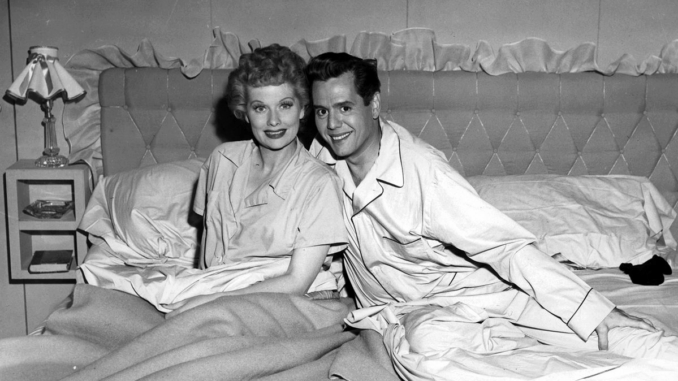
Why Could Lucy Still Call Fred When the Power Was Out? A Deep Dive Into 1950s Telephone Technology and TV History
Rewatching classic television often brings up questions about everyday life in the past. One small but fascinating moment occurs in an episode of I Love Lucy: Fred Mertz turns off the gas and electricity in the building, yet Lucy still manages to pick up the phone and call him. For a modern viewer, this might feel like a blooper—shouldn’t the phone have stopped working if the power was off? The truth is that this scene is not a mistake at all. It’s actually a perfectly accurate reflection of how telephone systems operated during the 1950s.
Telephones in the 1950s Were Independent of Household Power
Back in Lucy’s time, home telephones were nothing like the cordless handsets or cell phones we use today. They were simple, wired devices that ran entirely on a separate network managed by the telephone company. When you lifted the receiver, the power to operate the phone came from the central office or exchange—not from your home’s electrical system.
Telephone companies supplied a very low, constant current through copper lines. This current powered the microphone, speaker, and bell of the phone. Even when lights went out and appliances stopped working, the phone lines kept functioning. In fact, one of the big selling points of landline phones for decades was their reliability during power outages. Families could call for help even when the house was completely dark.
Why Cutting the Gas and Electricity Didn’t Matter
In the episode, Fred Mertz cutting the gas and electricity would have affected only the services supplied to the building—things like lamps, stoves, refrigerators, and heaters. It had no connection to the telephone system. The phone lines were maintained and powered separately, often running overhead on poles or underground, and were connected to switching stations that had their own power supplies and, later on, backup batteries or generators.
Even in emergencies or large blackouts, phone service often continued without interruption. For apartment buildings like the one Lucy lived in, the landlord could shut off power or gas, but the phone remained an entirely separate utility.

Was It a Filming Error?
Many viewers assume this was a mistake because they are used to modern phones, which typically need electricity to work. Today, most home phones are cordless and require a powered base station. Cell phones, of course, need battery power and chargers. But Lucy’s era was different. Telephones were deliberately designed to be self-contained and dependable. So, when Lucy picked up the phone after Fred flipped the switches, it was not a goof—it was exactly how things would have worked.
A Glimpse Into a Different Time
This moment is also a reminder of how everyday conveniences have changed. When I Love Lucy first aired in the 1950s, a phone in the home was already a sign of connection and security. People could call family, businesses, or emergency services without worrying about a power outage. That reliability made telephones essential, especially in big cities.
For fans of I Love Lucy, these little technical details make rewatching the show even more interesting. They reveal how much the world has changed, not just in technology but in daily habits. Today’s audiences are accustomed to smartphones, Wi-Fi, and devices that stop working the moment the electricity goes out. But in Lucy’s world, the humble rotary phone stayed alive even when everything else went dark.
Why This Matters for TV History
Moments like these highlight why classic shows are worth revisiting. They don’t just entertain; they capture the way people lived. From rotary phones to separate gas meters, these small touches show us a world before cordless convenience and digital dependence. Understanding these details adds richness to the viewing experience and reminds us that what looks like a mistake to us today was just everyday life back then.
With more than 70 years since its debut, I Love Lucy continues to charm audiences not only because of its comedy but also because of the slice of mid-century life it preserves. And yes—Lucy’s call to Fred after the lights went out was exactly what would have happened in real life.
